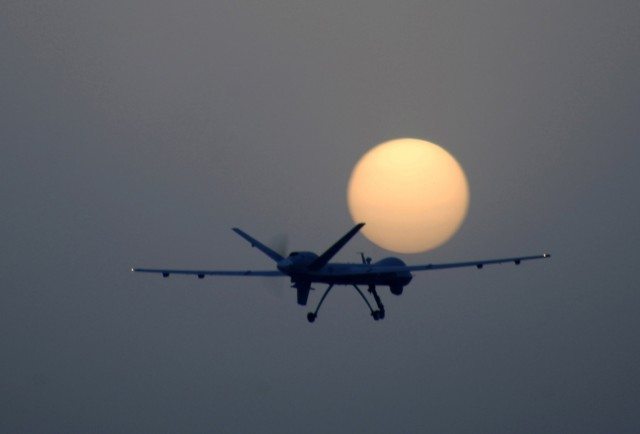Britain’s defence forces should spend more of their budget on spy planes, drones and covert forces to fight extremist militants, Prime Minister David Cameron said on Monday.
The government last week announced it would meet the minimum defence spending target set by NATO of two percent of gross domestic product for the full five years of Cameron’s Conservative administration, elected in May.
“I have tasked the defence and security chiefs to look specifically at how we do more to counter the threat posed by ISIL and Islamist extremism,” Cameron said in a statement, referring to Islamic State (IS) militants, who have carved out large regions of control in Syria and Iraq.
“This could include more spy planes, drones and special forces. In the last five years, I have seen just how vital these assets are in keeping us safe.”
A review of spending by defence chiefs is due to conclude in the autumn.
The review should prioritise “evolving threats, be that terrorism, extremism, or an increasingly aggressive Russia and whether that threat is physical or in cyberspace”, the statement from Cameron’s office read.
It will also examine how Britain’s navy could use the HMS Queen Elizabeth aircraft carrier to launch drones and special forces, working with partners such as the United States.
Britain is currently part of a coalition fighting IS in Iraq, and has a surveillance role in Syria.
Government ministers have begun making the case for joining bombing campaigns against IS in its Syrian strongholds as well.










